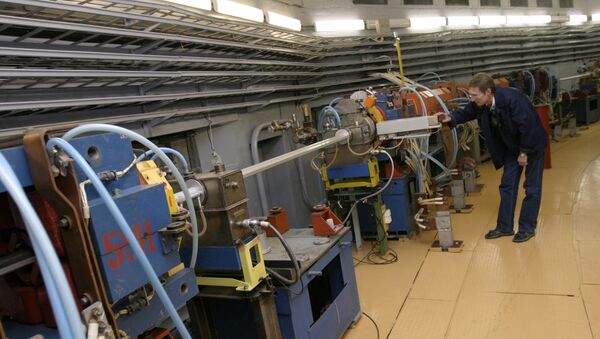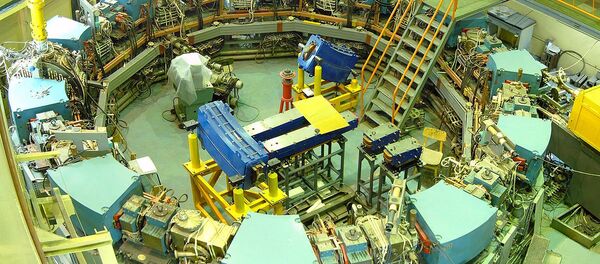President Vladimir Putin has given the nod to the proposed construction of a particle accelerator on Russia’s Far Eastern Russky Island, the director of the Kurchatov Institute National Research Center, Mikhail Kovalchuk, said.
“Today we did it! The whole idea came as a surprise. We shared it [with Putin] and he said he liked it. The President has just announced that we will build a synchrotron at the University of the Far East on Russky Island,” Kovalchuk told reporters after meeting with Vladimir Putin at the Kurchatov Institute.
In February, President Putin gave his initial backing to the idea of creating a powerful, $640 million, synchrotron to study the structure of substances on a nanometer scale.
A synchrotron accelerates electrons to extremely high energy and then makes them change direction periodically.
The resulting X-rays are emitted as dozens of thin beams, each directed toward a beamline next to the accelerator.
There are now two synchrotrons in Russia: one in Novosibirsk and another in Moscow.
The fourth-generation synchrotron can be built in five to seven years on infrastructure remaining from a project to create a Soviet collider in Protvino, outside Moscow, which was put on hold in the 1990s.
READ MORE: Kurchatov Institute Gets $230 Mln From Federal Budget



